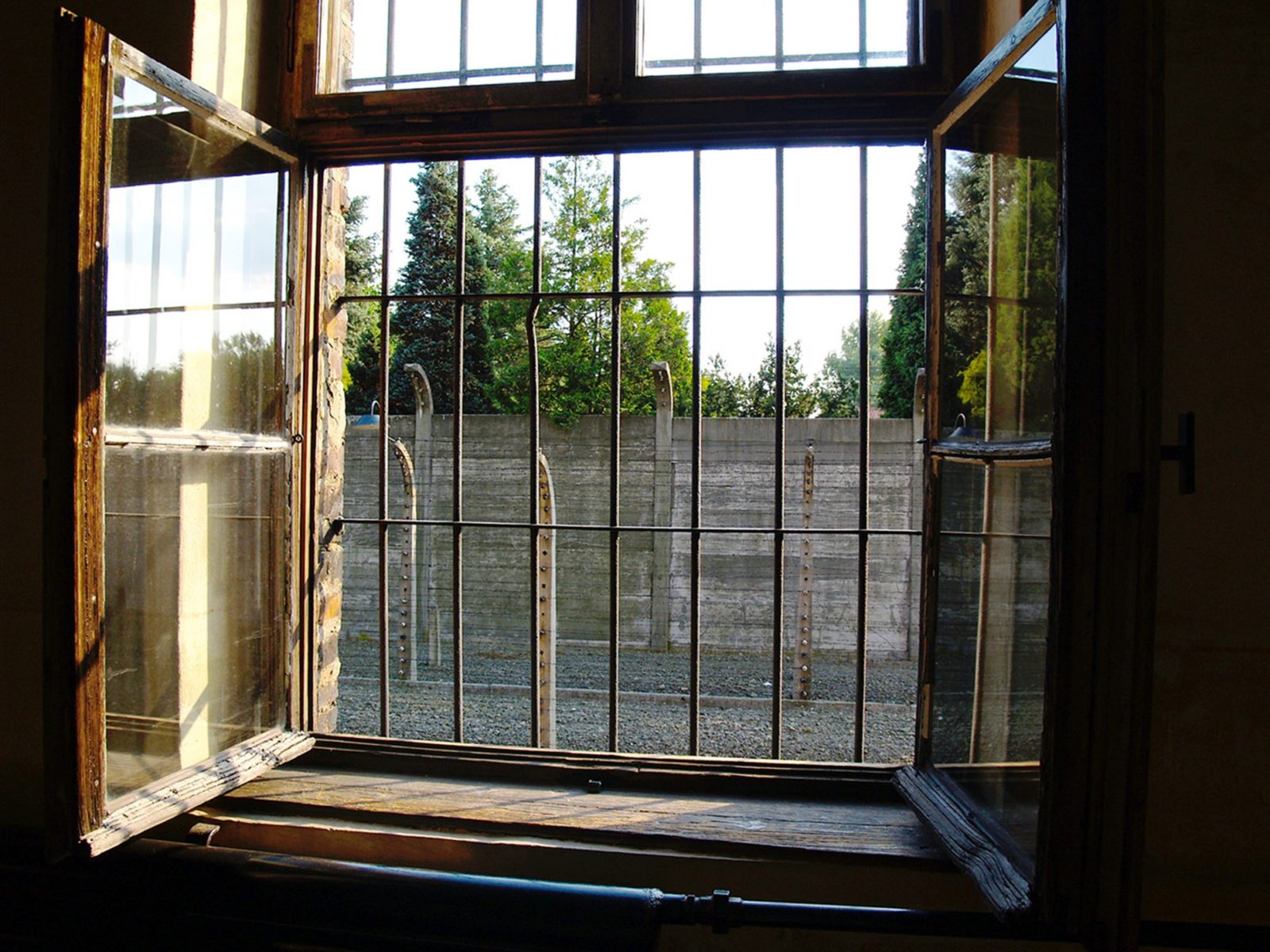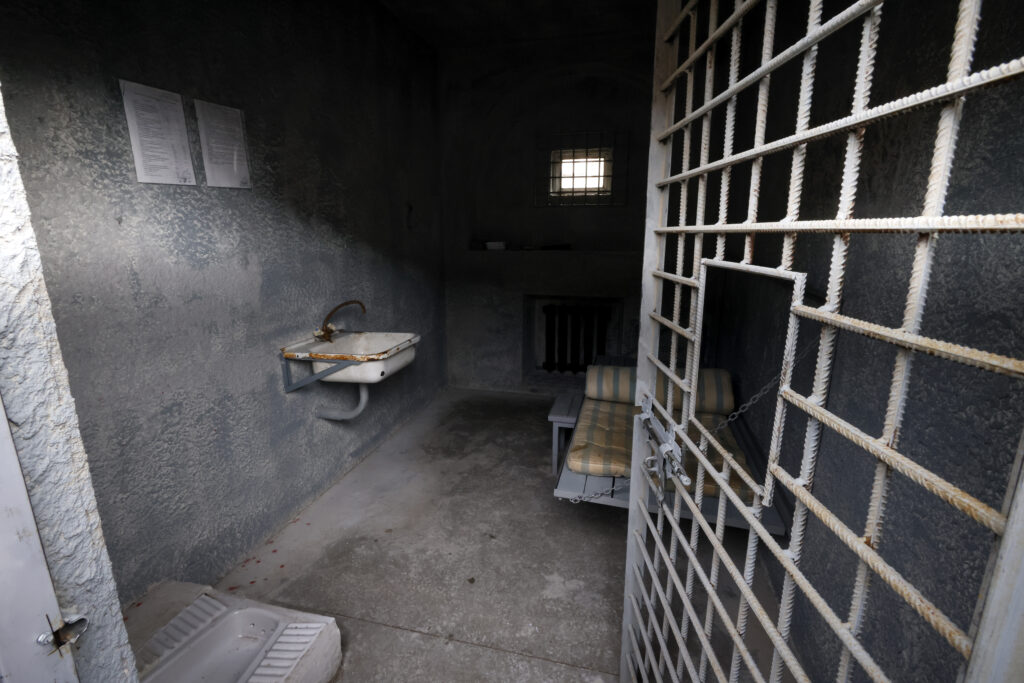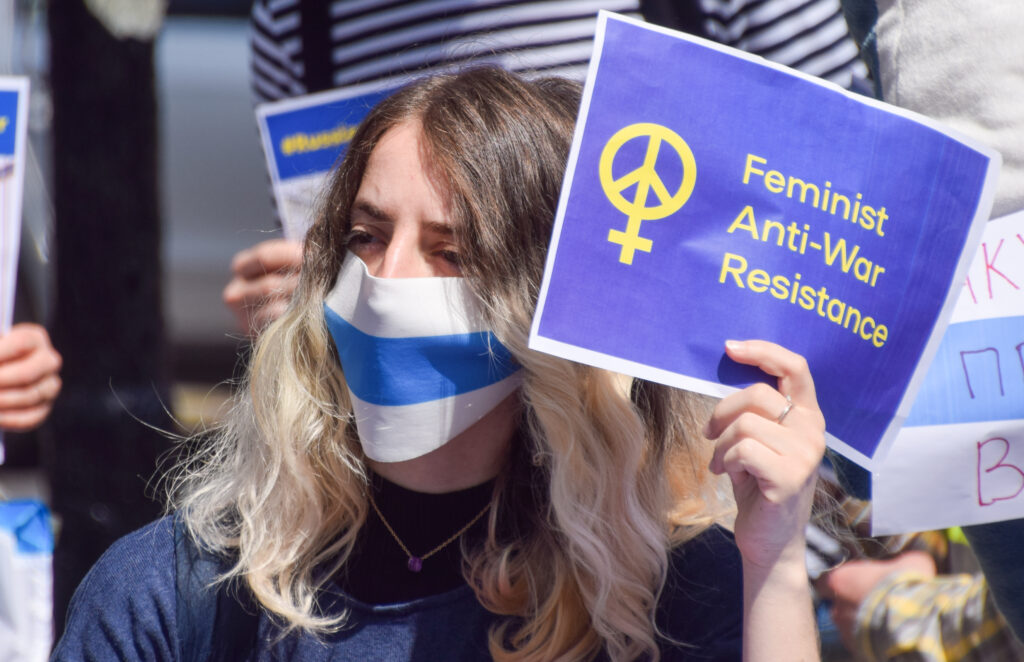According to the latest official data, 617,191 people are currently housed in Russian prisons, penal colonies, penal settlements and pre-trial detention centers. Of this figure, 48,455 are women. 39,018 women are serving sentences in penal colonies, secure hospitals, and prevention-and-treatment facilities, while 9,437 are being remanded in pre-trial detention centers. Given that Russia’s merciless criminal courts acquitted just 0.36% in 2016, almost all of these women will most likely be found «guilty».
Undoubtedly, the living conditions of a female convict are dependent both on the region and policies of higher officials of the local Office of the Federal Service for the Enforcement of Punishments of the Russian Federation (FSIN) and the personalities of the wardens in the given colony and/or of the convict herself. It is for good reason that a popular phrase among prisoners is that: «If you haven’t served time in Mordovia, you know nothing about prison». The region has become notorious among criminals as the most dangerous place to serve one’s sentence and understandably, not a single convict wants to end up there.
Mortality
In 2016, over 3,000 convicts filed applications for early release in connection with serious illnesses and 1,600 inmates have since been released on parole. These inmates were simply sent home to die in a bid to bolster prison statistics. Russia’s Minister of Justice Alexander Konovalov proudly reported that mortality among inmates had dropped by 10%. Notably, however, he omitted to mention the exact number of those who had met their demise. Some terminally-ill inmates are not afforded an opportunity to say a final farewell to loved ones as a free person.
The human rights organization «Zona Prava» has reported on the cases of three female inmates who died in Saint Petersburg in the Friedrich Joseph Haass Prison Hospital. Two other inmates were released (in both cases, the Saint Petersburg City Court overturned a decision of the Smolninskiy District Court, ruling that the two women, dying of cancer, were to be released). Among the deceased was a 55-year-old woman who suffered from stage four cancer and who died just a few days prior to a court hearing during which a motion concerning her release from prison was to be considered. She managed to tell Attorney Vitaliy Cherkasov that she had been denied a transfer to other specialized institutions where she could have been provided with genuine medical aid, and that hospital personnel had been in no rush to save her life. Two other women suffering from final stage cancer and HIV died right after they lost hope. Although the two women were still allowed to file an appeal, the Court of First Instance refused to release them, despite their obvious, grave health conditions. At that time, the European Court of Human Rights ordered the Russian authorities to provide emergency medical assistance to the women or release them in order so that they could undergo adequate medical care in a public hospital. Still, the miracle never came to pass…
This year, in St. Petersburg, following the death of an inmate suffering from cancer, the first criminal case against prison medical personnel of Hospital No. 1, medical unit-78 of the Federal Penitentiary Service of Russia was initiated. Following a diagnosis by an oncologist, the woman was not sent to a specialist for consultation, what’s more, she was not sent for specialized treatment, and, thirdly, she was treated merely for her symptoms which did not prevent the spread of the disease. However, the chance of a conviction in this criminal case is slim (as it is with many other cases of medical negligence in public hospitals); as, at the end of the day, no one will be punished for the death of the convict. Even high-profile federal information campaigns conducted by leading mass media outlets, such as those conducted with respect to the case of the death of Vera Trifonova in a detention center or the health condition of Margarita Charykova’s, a disabled person, failed to bring about ostentatious sentencing for those found guilty. And so, the case against medical doctor Alexandra Artamonova regarding Vera Trifonova’s death was tacitly discontinued two years following her demise in connection with the expiration of the limitation period, with no case against Charykova’s doctors ever even having been initiated. Often, this occurs due to the fact that terminally-ill patients are placed in detention facilities by judges who, routinely, are not held accountable for such decisions.
Voluntary, but compulsory labor
To date, the topic of forced labor has best been described in an open letter by a member of «Pussy Riot», Nadezhda Tolokonnikova. Following her transfer to a penal colony in Mordovia, she penned a letter describing the slavish conditions she and her fellow convicts endured. According to her letter, prisoners were forced to work in a sewing workshop for 16−17 hours a day, with barely any days off, only four-hours sleep per night and were subjected to constant threats by the prison authorities. The head of the «Zona Prava», Sergey Petryakov noted that the situation regarding penal servitude for women has changed very little since the story attracted national media coverage: «In many women’s colonies which have production plants, „voluntary“ overtime work is available. In reality, however, overtime is far from ‘voluntary’». Women are forced to sign waivers stating that they are prepared to work overtime and on weekends «of their own volition». Any inmates who refuse to do so may as well forget about release on parole and will inevitably face conflict situations inside the colony as, should an inmate refuses to work overtime, others are left with no choice but to increase their own productivity levels. One must also bear in mind that all female colonies are classified as «red» colonies.
Torture
«Zona Prava» dealt with the case of Olga Minakova who was handcuffed to a bed for 40 days and nights whilst she was held in solitary confinement in a penal colony in the Sverdlovsk Province. She managed to prove at appeal that the actions of the administration had been illegal. In her complaint, she wrote that, while in the solitary confinement, she was forbidden from possessing shampoo or deodorant, she couldn’t wash, there was no hot water, and so, her material and living conditions were simply inhumane. Assumedly, such means of influence are widely employed with respect to all stubborn inmates who attempt to resist the administration of the colony.
Life
Although we acknowledge that the plight of inmates held in men’s prisons is hardly a bed of roses, we should emphasize that subjecting female prisoners, in particular, to weekly bathing and restricted laundry is tantamount to torture. At the same time, in some places, e.g. in Chuvashia, inmates can wash their clothes in their cells, while in others, it is strictly prohibited and punishable. In Chuvashia, in two out of the three colonies for women, some cells are equipped with washing machines as well as a hot water supply. Still, inmates held in other regions can only dream of such luxuries.
Jail time has broken many families. No in-depth studies on the subject have been carried out so far, but, human rights activists who are familiar with the topic have confirmed that: the percentage of women to have lost contact with their husbands on the outside is much higher than in the reverse scenario, as when a man is in prison, his wife typically visits him and writes to him for many years and in men’s colonies, it’s common to see a line of visitors brandishing parcels, while in women’s colonies, silence and the sense of emptiness prevail.
It is no secret that same-sex intimate relationships are commonplace in penal colonies. Unlike in men’s prisons, in women’s institutions this phenomenon is not seen as taboo nor does it have strictly negative overtones. According to some female inmates, prison authorities take advantage of such relationships in order to exert influence over stubborn prisoners. They do so by either allowing a «family» to live together in one cell or by threatening to exert increased pressure on prisoner’s partner.
Children
This is not only, and not so much, a human rights issue as it is a psychological one. Psychologists, when referring to the theory of attachment, assure that children feel better with their mothers, even in prison, as opposed to in an orphanage. In practice, the problem is more difficult. Such children are known as «gray flowers». To date, this problem has concerned 564 babies and toddlers who have lived in 13 children’s homes inside women’s colonies. Children are allowed to stay there for up to three years. When a child turns three years old, the prison administration may extend the length of their stay in such houses until such time that the mother leaves the colony, provided that no more than a year of her sentence remains. Mothers are allowed to communicate with their children during their spare time. Women who have children living in these children’s homes are permitted to wear ordinary clothes, as opposed to a prison uniform, providing, of course, they have a breastplate attached. In some colonies, an administration may allow mothers to live with their children. However, according to the author of the project «Woman. Prison. Society», Leonid Agafonov, these mothers are merely benefitting an experimental scheme which is practiced in just a few penal colonies, for example, in Nizhny Novgorod.
The main problem is that the so-called «gray flowers» grow apart from their moms, — Leonid Agafonov says. — In fact, moms are not with their children. They grow up without moms. They only see each other a few hours a day. Immediately after a baby is born, mothers are taken back to their cells and are not allowed to stay with their children. During quarantine, they do not see their children. When a child is admitted to hospital, his or her mother is not allowed to be present.
With regard to children on the outside, depending on the attitudes and behaviors of convicted mothers, they may receive up to two additional long visits on weekends and holidays each month which take place outside the walls of the penal colony, within the local area. Any mother who is in conflict with the administration is excluded. That is, the colony administration use a mother’s right to see a child as leverage in order to manipulate her.
Changes
The prison system in Russia, as one of the most rigid, is changing very slowly. In order to compare the present situation with that of the past, it is suffice to recount the words of Irina Teplinskaya. In the 80’s and 90’s, she was incarcerated in several penal colonies in Arkhangelsk, Perm and Chuvashia provinces, and, currently, she campaigns for the protection of the rights of HIV-positive people and drug users, helping to ensure their access to medical, legal and social services. According to her, for violations of the rules of detention and internal regulations, instead of applying admonition or placing inmates in solitary confinement or cell-type rooms (the so-called PKT), as applied now, women were deprived of parcels, packages, visits or the opportunity to purchase items: ‘It transpired that many were deprived of all of these things until the end of their sentences, and so they could only eat prison food’. Teplinskaya also testified to the fact that she expected to work three shifts including nights, and that those who did not meet production targets could expect a beating as entire brigades were often punished for a single inmate’s behavior. This is very similar to what Nadezhda Tolokonnikova wrote 20 years later in her high-profile letter and also to what the head of «Zona Prava», Sergei Petryakov, has stated.
Still, one should not expect any improvement as regards the situation surrounding women in the Russian penitentiary system or solutions to urgent problems in the penitentiary department in the near future. In the conditions of a pervasive crisis, today’s government simply doesn’t consider this task a priority, as it is forced to patch up ever emerging holes and fight fires in other areas. Currently, the authorities have more important issues to deal with than incarcerated women, as addressing the problems of female inmates will not help the authorities to win the elections in March 2018.










